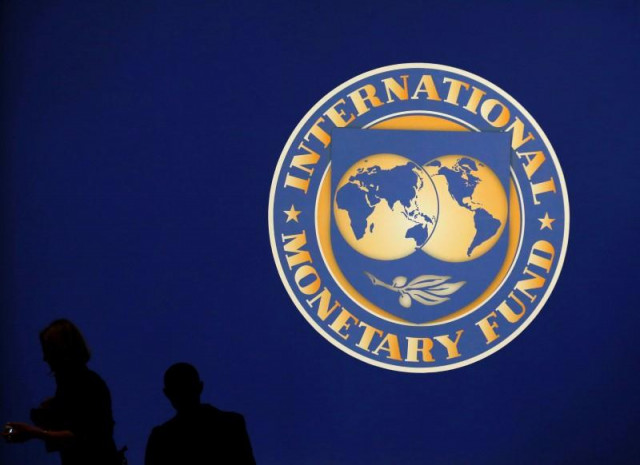Bailout talks with IMF hit last-minute snag
Three main sticking points lead to inconclusive talks on last day of IMF visit

PHOTO: REUTERS
There were at least three main sticking points that led to inconclusive talks till the last day of the IMF visit, said sources in the Ministry of Finance. As of Thursday, the top management of the Ministry of Finance was hopeful to conclude the deal and the IMF team had planned to return on May 11.
But the sources said things went off the track after the IMF insisted on inclusion of some new conditions in the programme, which appeared unreasonable.
Prime Minister Imran Khan also expressed reservations over massive additional taxes burden that the nation will bear from July this year, provided both sides reach an agreement.
On verge of IMF deal
“We have made good progress in our discussions with the visiting IMF Mission. Consultations will continue over the weekend,” said Dr Khaqan Hasan Najeeb, the spokesman of the Finance Ministry.
Pakistan has accepted the IMF’s demands of flexible exchange rate regime, withdrawal of subsidies, containing borrowings from the central bank and reinitiating the privatisation programme.
Led by its Washington-based mission chief Ernesto Rigo, the IMF team was originally supposed to stay in Pakistan from April 28 to May 10. Rigo will stay in Pakistan for at least one more day in hope to conclude the deal.
The sources said the IMF has sent a draft of the proposed agreement to Washington for vetting that includes some new conditions. These conditions were no part of negotiations in the first round of talks when the State Bank of Pakistan former governor Tariq Bajwa was part of Pakistani team.
The sources said the IMF reopened the issue of upfront increase in discount rate by at least 2% despite the real interest rates were already positive by 3.75%. The other key area was the exchange rate, as the IMF model showed at least 20% further devaluation of rupee against the US dollar.
The rupee-dollar parity will undergo further change, if Pakistan and the IMF reach a staff level agreement on Saturday (today), the sources said, adding that initially PM Imran had certain reservations but he softened his position after at least two rounds of discussions with his adviser Dr Hafeez Shaikh.
“There is inflation in the country and prices of gas and electricity are going up to retire debt of energy sector,” said Imran Khan while addressing a public gathering on Friday. It appeared the premier was preparing the nation for “difficult times ahead”.
Further rupee fall, interest rate hike expected
The talks remained inconclusive despite Pakistan conceded to almost everything that the IMF asked for, the sources added. Pakistan and the IMF are engaged to finalise the bailout package for the past eight months. It was the second visit by the IMF staff level team during the past five months that again could not conclude the deal within the due time.
Pakistan’s new programme will be of Egyptian model because the new SBP chief Dr Reza Baqir, a former IMF official, is implementing that programme, said Dr Ashfaque Hasan Khan, a member of government’s Economic Advisory Council. He said this will also be painful for Pakistanis the way it was painful to Egypt.
Dr Khan said there should be no more devaluation and no more hike in interest rates otherwise economy will be totally choked. There is an apprehension that the IMF is also working under the influence of the US government that is creating more problems for Pakistan.
The sources said after the induction of new SBP governor into Pakistan’s economic team, the focus of the talks largely shifted from fiscal to monetary issues.
The IMF wanted that the interest rate should be around 13% to contain the inflationary pressures that are expected to build up due to withdrawal of electricity subsidies and further currency devaluation.
On the fiscal front, the IMF’s main concern was the primary balance instead of the overall budget deficit. This would require massive increase in next year’s tax collection target, which was also the matter of concern for Prime Minister Imran Khan.
But the senior officials of the Finance Ministry are hopeful that the staff level agreement could be reached today (Saturday) once the proposed draft is vetted by the IMF senior management.



















COMMENTS
Comments are moderated and generally will be posted if they are on-topic and not abusive.
For more information, please see our Comments FAQ